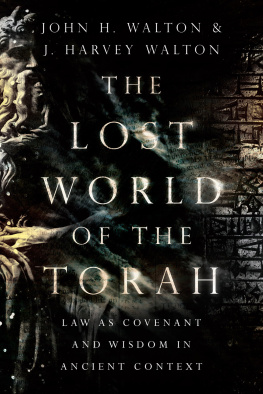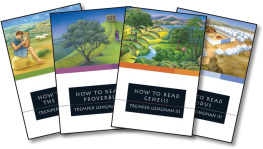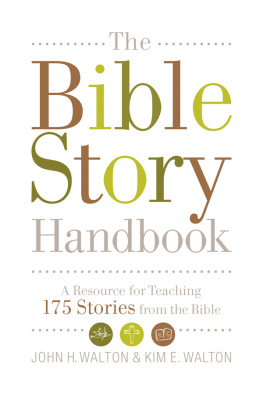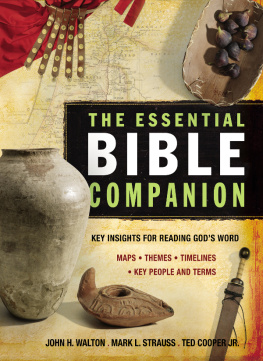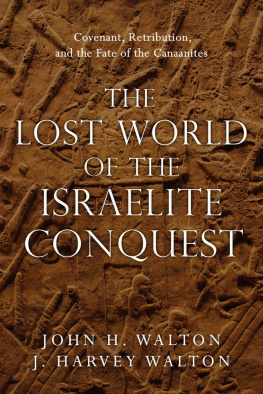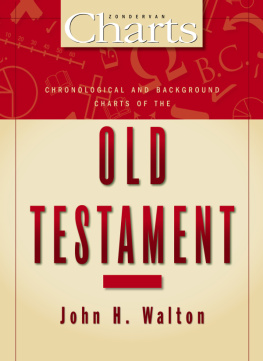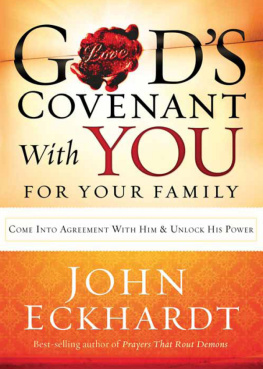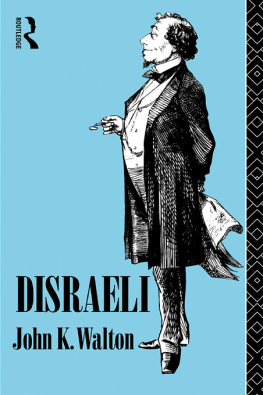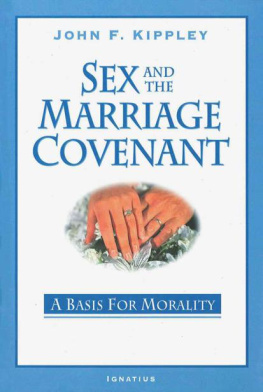John H. Walton - The Lost World of the Torah: Law as Covenant and Wisdom in Ancient Context
Here you can read online John H. Walton - The Lost World of the Torah: Law as Covenant and Wisdom in Ancient Context full text of the book (entire story) in english for free. Download pdf and epub, get meaning, cover and reviews about this ebook. year: 2019, publisher: InterVarsity Press / IVP Academic, genre: Religion. Description of the work, (preface) as well as reviews are available. Best literature library LitArk.com created for fans of good reading and offers a wide selection of genres:
Romance novel
Science fiction
Adventure
Detective
Science
History
Home and family
Prose
Art
Politics
Computer
Non-fiction
Religion
Business
Children
Humor
Choose a favorite category and find really read worthwhile books. Enjoy immersion in the world of imagination, feel the emotions of the characters or learn something new for yourself, make an fascinating discovery.
- Book:The Lost World of the Torah: Law as Covenant and Wisdom in Ancient Context
- Author:
- Publisher:InterVarsity Press / IVP Academic
- Genre:
- Year:2019
- Rating:3 / 5
- Favourites:Add to favourites
- Your mark:
- 60
- 1
- 2
- 3
- 4
- 5
The Lost World of the Torah: Law as Covenant and Wisdom in Ancient Context: summary, description and annotation
We offer to read an annotation, description, summary or preface (depends on what the author of the book "The Lost World of the Torah: Law as Covenant and Wisdom in Ancient Context" wrote himself). If you haven't found the necessary information about the book — write in the comments, we will try to find it.
The Lost World of the Torah: Law as Covenant and Wisdom in Ancient Context — read online for free the complete book (whole text) full work
Below is the text of the book, divided by pages. System saving the place of the last page read, allows you to conveniently read the book "The Lost World of the Torah: Law as Covenant and Wisdom in Ancient Context" online for free, without having to search again every time where you left off. Put a bookmark, and you can go to the page where you finished reading at any time.
Font size:
Interval:
Bookmark:
LOST
WORLD
OF THE
TORAH
AND WISDOM IN
ANCIENT CONTEXT

J. HARVEY WALTON

InterVarsity Press
P.O. Box 1400, Downers Grove, IL 60515-1426
ivpress.com
2019 by John H. Walton and J. Harvey Walton
All rights reserved. No part of this book may be reproduced in any form without written permission from InterVarsity Press.
InterVarsity Pressis the book-publishing division of InterVarsity Christian Fellowship/USA, a movement of students and faculty active on campus at hundreds of universities, colleges, and schools of nursing in the United States of America, and a member movement of the International Fellowship of Evangelical Students. For information about local and regional activities, visit intervarsity.org.
All Scripture quotations, unless otherwise indicated, are taken from The Holy Bible, New International Version, NIV. Copyright 1973, 1978, 1984, 2011 by Biblica, Inc. Used by permission of Zondervan. All rights reserved worldwide. www.zondervan.com. The NIV and New International Version are trademarks registered in the United States Patent and Trademark Office by Biblica, Inc.
Cover design: David Fasset
Interior design: Beth McGill
Images: glittering silver background: Nastco / iStock / Getty Images Plus
starry sky: Micael Malmberg / EyeEm / Getty Images
Bible passages: Ipkoe / iStock / Getty Images Plus
black slate: xamtiw / iStock / Getty Images Plus
blue sky: czekma13 / iStock / Getty Images Plus
code of Hammurabi: jsp / iStock / Getty Images
Michelangelos Moses: powerofforever / iStock / Getty Images Plus
ISBN 978-0-8308-7257-2 (digital)
ISBN 978-0-8308-5241-3 (print)
This digital document has been produced by Nord Compo.
In English we use the expression law and order. This sort of construction is known as a hendiadystwo nouns joined by and expressing a single idea (cf. assault and battery). In this expression, order is the objective and law is the means of achieving it. Law is not the only way to achieve order; others would include ethics and customs of etiquette (little ethics). Society is regulated by mores and taboos that dictate what constitutes orderly (or disorderly) conduct. Such regulations can be formal or informal, enforced by outside agency or by social pressure, oral or written, explicit or implicit. They can be normative throughout society or subject to differences of opinion (for example, based on conflicting ideas between generations). Order is generally associated with a particular understanding of what constitutes the common good.
Law is not limited to what is perceived as moral behavior. For example, traffic laws, though essential for order, are not moral in nature. At the same time, perceptions of foundational morality are often embodied in law, but not always. In fact, some people would agree that some laws should be judged immoral and therefore should be resisted (e.g., racial segregation laws). The objective of law is order, and moral behavior is often one aspect of order. In modern Western societies, law is formal, written (codified), and enforced by agencies and institutions (police, judiciary). Such an approach to legislation is referred to as statutory law. Given how deeply entrenched this idea of law is, it is instinctive for us to imagine that law in other societies functions in the same way. That is one of the major presuppositions that will be challenged in the following chapters.
In conjunction with assumptions about how law works, people have assumptions about how the Bible workshow it should be interpreted. In our modern world, our handling of what we call the biblical law teeters between heated controversy and utter neglect. Controversies arise when Old Testament laws seem either odd beyond comprehension (not eating lobster) or morally reprehensible (executing children). Neglect results when we consider the law obsolete, no longer carrying any normative power (tassels on clothing, sacrifices). Even readers who do attempt to make use of the Old Testament law often find it either irrelevant or so confusing that they throw up their hands in despair, frustrated at its perceived impenetrability. Despite the extremes of vitriol and dismissiveness, peoplesometimes the same people who are controversial or dismissivecontinue to propose moral principles from these laws and garner prooftexts to resolve the issues that arise in society by offering the biblical view. As a result, both Christians and skeptics regularly abuse the Old Testament Law as it is misrepresented and misunderstood, and its true message too often lies either fallow or trampled underfoot.
If we seek to be faithful interpreters we need to be readers who read the text in an informed and careful manner, who are consistent in the methods that we use, who refuse to manipulate the text to our own ends, and who respect the autonomy under which divine authority operates. We must interpret in light of a sound understanding of the language and literature of the text, including how the genre works. We must be committed to seeking what the original communicators intended to sayno more, no less. We dare not incorporate ideas into the text that were not in their purview. Beyond these acts of interpretation, we must commit to being responsive to the text. Differences of opinion may well exist as to what that response ought to be, but traditionally many have agreed that in its most general sense it involves being the sort of people who represent God well in the world (whatever that entails) as we participate in his plans and purposes. As faithful interpreters of Lawmore accurately, Torahwe must therefore seek understanding of how the genre works, what the paragraphs of legal sayings meant in their context, and what significance (if any) they should have for people today seeking to order their lives and society in faithful submission to Gods word. The most important interpretive question is not, what is this statement telling me to do in order to represent God properly? The question we should ask first is, why is this in here?because that will help us address the literary task.
It is the first objective of this book to provide information about the Torah that will help readers to become more aware of how this biblical literature functioned in its contextthat is, why this literature was presented in this particular way, and why what it says in this form was important enough to be regarded as Scripture. We have to start in the ancient world and recognize the nature of this sort of literature in the ancient world. Then, based on that contextualization, we need to penetrate the Hebrew text to understand how the Torah was meant to function for the ancient Israelites. Only then will we be in a position to inquire what the authoritative significance of the Torah is for us.
Paul tells Timothy that all Scripture is God-breathed and is useful for teaching, rebuking, correcting and training in righteousness, so that the servant of God may be thoroughly equipped for every good work (2 Tim 3:16-17). Many readers think that this passage tells us what the significance of the Torah is without the need for a genre study. However, Paul is here affirming what Timothys upbringing has already taught himthat teaching, rebuking, and so on were in fact what Jews of Timothys day thought the Hebrew Bible (what Paul means by the word
Font size:
Interval:
Bookmark:
Similar books «The Lost World of the Torah: Law as Covenant and Wisdom in Ancient Context»
Look at similar books to The Lost World of the Torah: Law as Covenant and Wisdom in Ancient Context. We have selected literature similar in name and meaning in the hope of providing readers with more options to find new, interesting, not yet read works.
Discussion, reviews of the book The Lost World of the Torah: Law as Covenant and Wisdom in Ancient Context and just readers' own opinions. Leave your comments, write what you think about the work, its meaning or the main characters. Specify what exactly you liked and what you didn't like, and why you think so.

